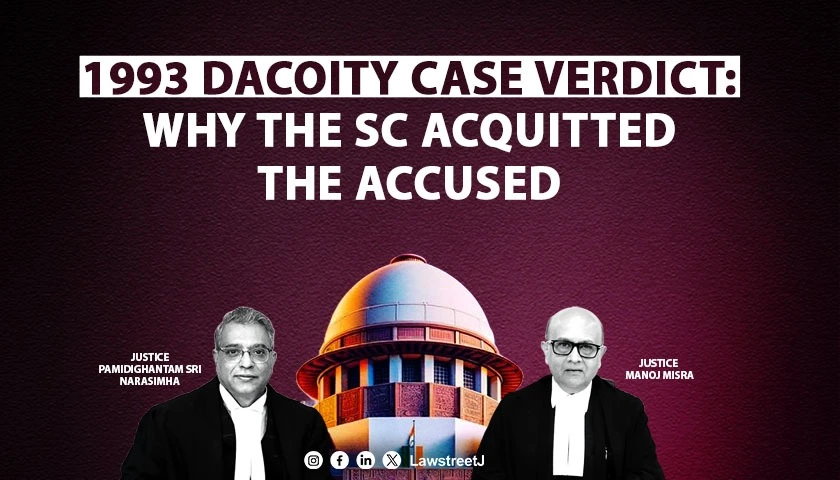New Delhi: The Supreme Court has delivered a significant judgment acquitting an accused in a dacoity case, emphasizing the crucial importance of examining Test Identification Parade (TIP) witnesses during trial and establishing key principles on evidence evaluation.
SC Ruling on Test Identification Parade: Key Legal Takeaways
Justices Manoj Misra and Pamidighantam Sri Narasimha made critical observations on the evidentiary value of TIP and its implications in criminal trials.
The court addressed a criminal appeal against a Chhattisgarh High Court judgment. It noted, “The factum of dacoity is proved beyond doubt where a running bus, carrying 35 passengers, was looted by about eight armed men on the night of 28.09.1993.”
1993 Dacoity Case Verdict: Why the Supreme Court Acquitted the Accused
Addressing concerns about witness examination, the court observed, “Though the TIP was carried out with the aid of the driver, khalasi (cleaner), and conductor of the bus, none of them was examined as a witness during trial.”
The court underscored a key legal principle regarding TIP evidence, stating, “Unless the witness who identified a person or an article in the TIP enters the witness box and submits himself for cross-examination, how can it be ascertained on what basis he identified the person or the article?”
In a specific directive, the court explained, “The TIP report, which could have been used to either contradict or corroborate those witnesses, is of no evidentiary value. Hence, the only substantive evidence on record regarding the identification of the appellant is the dock identification by PW-9.”
The court emphasized the necessity of proper corroboration, noting that no looted articles were recovered from the appellant, and the country-made pistol allegedly recovered was not linked to any empty cartridge found at the crime scene.
The appellant’s counsel highlighted various discrepancies in the prosecution’s case, including the non-examination of key witnesses and questionable circumstances of arrest.
The court directed that the appellant be acquitted of all charges, with his bail bond discharged and no requirement to surrender.
Case Title: Vinod @ Nasmulla vs. The State of Chhattisgarh











